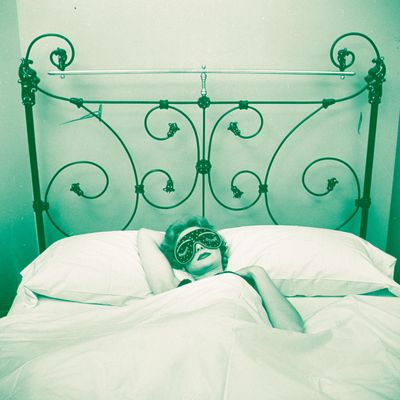
Sleep experts tell you the importance of establishing a pre-bedtime routine, and I’ve done just that: I get in bed at the reasonable hour of 11 or 11:30, plug in my phone, and then stare at Twitter until after midnight. At this point, the calculation begins. Okay. If I want to get up at 7:15, and it’s 12:15 now, that’s still seven hours of sleep. It’s fine! It’s fine.
It is not fine, author and sleep scientist Matthew Walker would argue. Walker is the director of UC Berkeley’s Sleep and Neuroimaging Lab, and he’s also the author of the new book Why We Sleep, much of which is, unfortunately, filled with somewhat tired sleep advice. (Don’t drink caffeine too late in the day! Alcohol is not a magical sleep elixir! You can’t repay your “sleep debt” by sleeping longer on the weekends! Yeah, guy, we know.) But one idea he presents was new even to me, an increasingly grizzled health and science editor: that of the “sleep opportunity.”
This is the number of hours in which you give yourself the best chance of sleep, meaning that you’re in bed, your eyes are closed, and your phone is, preferably, turned off and stowed far away. You will not necessarily sleep this entire time, but at least you’ll be giving yourself the chance. My typical routine, for example, allows me a seven-hour sleep opportunity, but to actually get all seven of those hours assumes I’m falling asleep the minute I close my eyes, which seems … implausible. I know — this seems so obvious! But sometimes a discrete word or phrase helps to clarify an ambiguous concept, and “sleep opportunity” did that for me.
In his book, Walker writes that most people give themselves a sleep opportunity of only five to six-and-a-half hours, which translates to about four to six hours of actual sleep. Walker, ever the virtuous sleep scientist, gives himself a “nonnegotiable” eight-hour sleep opportunity each night, which gives him enough of a buffer so that even if it takes him a little while to fall asleep, and even if he wakes up in the middle of the night, he still has a good chance of landing somewhere within the recommended seven- to nine-hour window. Of course, even if you were to copy Walker’s example, how much of that time you’d actually spend asleep is between you and your body’s predisposition for insomnia. Even so, it’s nice to have opportunities.




